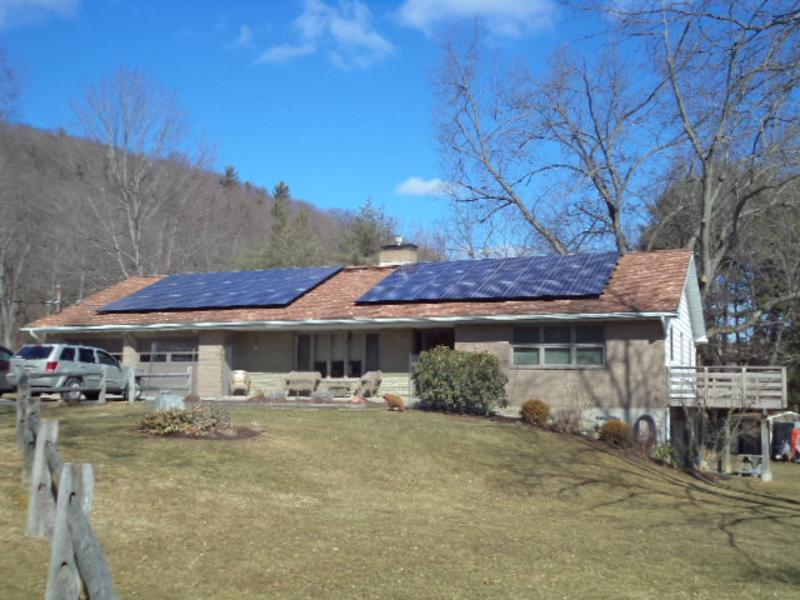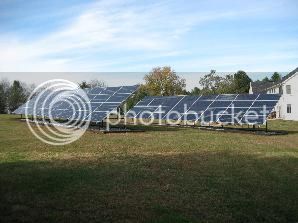HotRodZilla
GOD BLESS AMERICA
So, I don't know that I would normally bring something like this here, but I know we have a very diverse group, and I'm betting someone has some good info.
This is something I know ABSOLUTELY NOTHING about, except that panels get put on the roof, extra power goes back to the grid, and batteries help at night and overcast days. I'm asking because my mom called me today about getting solar added to her house. I have reservations because my mom is 68 years old and they want her to make payments for the next 13 years. It goes like this: the original cost is ~$23,000. The state or the feds offer a $7k rebate, so she would finance the remaining ~$16k with the option to pay it off whenever she wants. The panels are warrantied for 25 years. The company is: Green Solar Technologies.
I wonder what will happen in the winter when my mom has snow and ice on the roof. How does that affect the panels' efficiency? Anyone have a friend get a system like this and then pass away before it gets paid off? I don't want to end up with a $10k bill from these people if my mom decides it's time to move on from this life. It's stupid, because I wouldn't have worried about that 20 years ago, but now, its a fact that we have a limited time here. I know I can ask the company guy this, and I will, but I know he's going to give me the "canned salesman" response, and I want to know if anyone has any good firsthand experience they're willing to share. I do not want my mom getting hosed.
I guess that's about it. I don't know enough about it to even know what hardcore questions to ask. I'd appreciate your input.
Thanks...
HRZ
This is something I know ABSOLUTELY NOTHING about, except that panels get put on the roof, extra power goes back to the grid, and batteries help at night and overcast days. I'm asking because my mom called me today about getting solar added to her house. I have reservations because my mom is 68 years old and they want her to make payments for the next 13 years. It goes like this: the original cost is ~$23,000. The state or the feds offer a $7k rebate, so she would finance the remaining ~$16k with the option to pay it off whenever she wants. The panels are warrantied for 25 years. The company is: Green Solar Technologies.
I wonder what will happen in the winter when my mom has snow and ice on the roof. How does that affect the panels' efficiency? Anyone have a friend get a system like this and then pass away before it gets paid off? I don't want to end up with a $10k bill from these people if my mom decides it's time to move on from this life. It's stupid, because I wouldn't have worried about that 20 years ago, but now, its a fact that we have a limited time here. I know I can ask the company guy this, and I will, but I know he's going to give me the "canned salesman" response, and I want to know if anyone has any good firsthand experience they're willing to share. I do not want my mom getting hosed.
I guess that's about it. I don't know enough about it to even know what hardcore questions to ask. I'd appreciate your input.
Thanks...
HRZ





